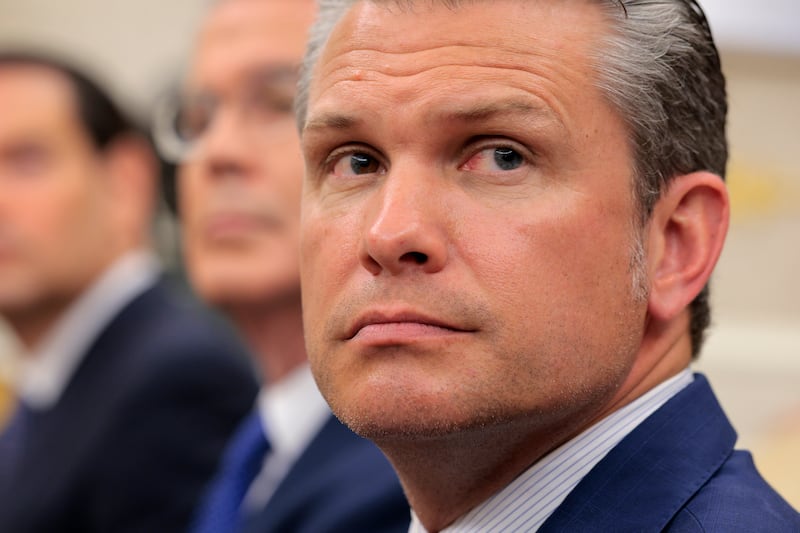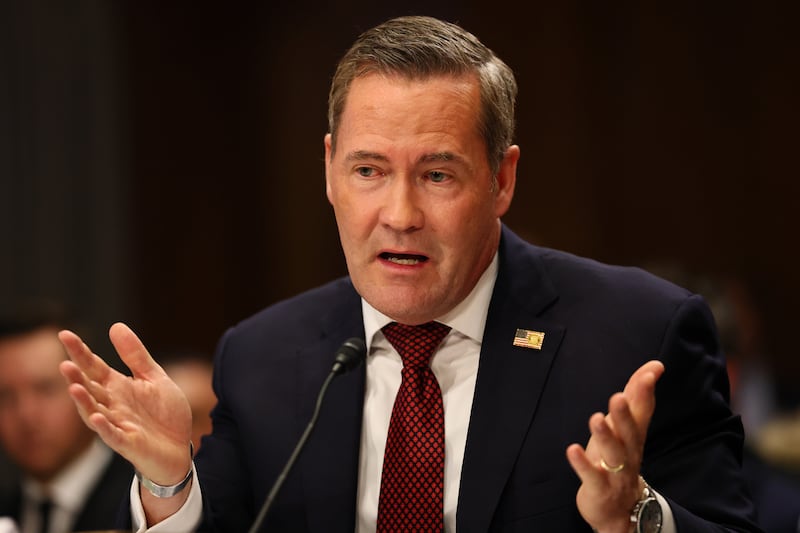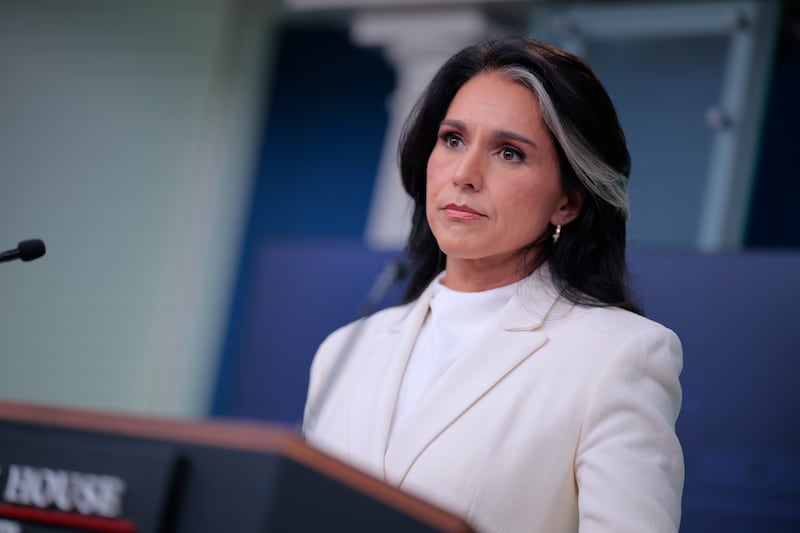A shock new report has revealed that the leaked Signal messages that Trump aides inadvertently sent to a journalist in March were classified, despite President Donald Trump claiming otherwise.
An independent watchdog told The Washington Post that messages from Defense Secretary Pete Hegseth’s Signal account disclosing a U.S. bomb campaign originated from a classified email labeled “SECRET/NOFORN.” The reveal contradicts longstanding claims by Trump and his staff that no classified information was shared in the chat.

The “SECRET” classification showcases that the information was so classified that unauthorized disclosure could be a risk to national security. “NOFORN” is a phrase that means it was not meant for anyone who is a foreign national, even allies.
During a March press conference regarding the Signal chat, Trump said that no classified information was shared. The Post’s new report says otherwise.
The bombshell comes as the Defense Department inspector general’s office conducts an inquiry into the messages, as requested by Republican and Democratic members of the Senate Armed Services Committee shortly after the scandal broke.
The Pentagon denied the Post’s report and maintained that the messages were declassified.
“This Signal narrative is so old and worn out, it’s starting to resemble Joe Biden’s mental state,” Chief Pentagon Spokesman Sean Parnell said in a statement to the Daily Beast. “The Department stands behind its previous statements: no classified information was shared via Signal. As we’ve said repeatedly, nobody was texting war plans and the success of the Department’s recent operations—from Operation Rough Rider to Operation Midnight Hammer—are proof that our operational security and discipline are top notch.”

The “Signalgate” fiasco rocked the White House in March after now-ousted National Security Adviser Mike Waltz added The Atlantic’s editor-in-chief to the group chat. The chat was created on a commercial messaging app called Signal to discuss a bomb operation in Yemen.
Journalist Jeffrey Goldberg exposed the administration in an article titled “The Trump Administration Accidentally Texted Me Its War Plans.” Soon after, critics slammed the administration for the move and questioned why high-level officials would use such vulnerable modes of communication.
The strike plans had been shared in a classified “SECRET” email with more than a dozen defense officials by Gen. Michael “Erik” Kurilla, the top commander overseeing Middle East military operations in the Middle East. They were then shared via the Signal group chat by Hegseth’s account on March 15, only moments before the U.S. struck Yemen.
Kurilla sent his sensitive message over the Secret Internet Protocol Router Network, a classified system. But the message later shared by Hegseth was not over the same highly guarded system—it was on a Signal group chat. Along with discussing the timing of the strikes, top Trump aides also used a number of emojis to celebrate the attack—including an American flag, flame, fist and bicep.

The chat also included Vice President JD Vance, Secretary of State Marco Rubio, and Director of National Intelligence Tulsi Gabbard.
The shared messages included highly sensitive information: the day’s strike plan, when the bombing was set to begin, what aircraft would be used, and what weapons would be involved. Trump fired Waltz from his post shortly after the public outrage that followed the scandal. But a number of Democrats and at least one Republican lawmaker have also called for Hegseth to be removed.
Hegseth’s time at the White House has been rocky and defined by frequent infighting and turnover. The findings of the Defense Department inspector general’s office are expected to be released within a few months and may put Hegseth’s job security at risk.






